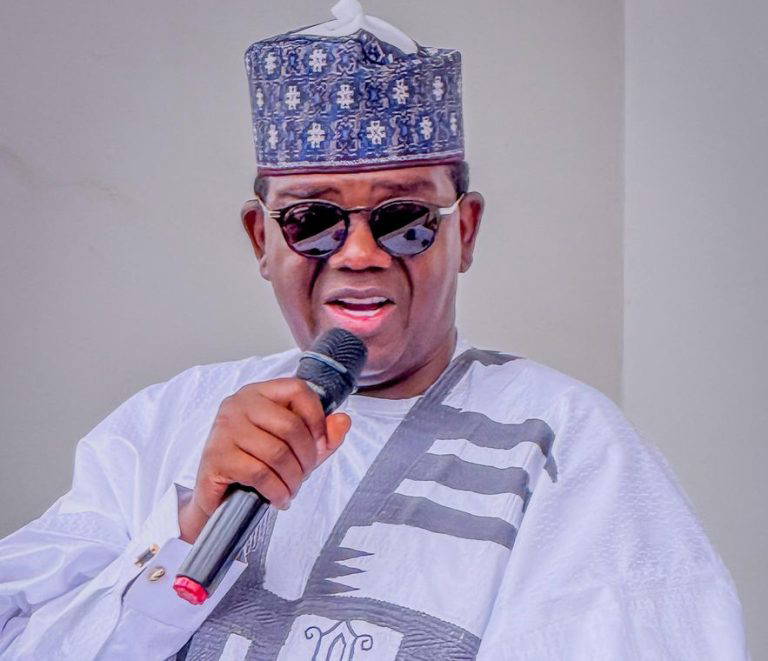Dear Beamers,
Greetings!
The narrative of women’s leadership in Nigeria is one of resilience, courage, and transformation. Across the nation’s inherent fractions of diversity, women have emerged as formidable leaders, breaking barriers and shaping a future that promises equity and progress. These women have not only broken through glass ceilings but have also paved the way for future generations, inspiring young girls to aspire to leadership roles. In this week’s newsletter, we explore the inspiring journeys of Nigerian women who are redefining leadership and making an indelible mark on society.
At different stages of history, Nigerian women have played significant roles in their communities, often as informal leaders and influencers. Figures such as Queen Amina of Zaria, who ruled in the 16th century, and Funmilayo Ransome-Kuti, a leading activist in the early to mid-20th century, illustrate a legacy of female leadership. Despite these precedents, modern Nigerian women face systemic challenges, including limited access to education, and societal expectations.
In recent years, there has been a noticeable shift. More women are ascending to leadership positions in politics, business, and civil society. The 2019 general elections saw an increased number of female candidates, and while the representation is still disproportionate, the momentum is undeniable. Women like Ngozi Okonjo-Iweala, Director-General of the World Trade Organization, and Amina J. Mohammed, Deputy Secretary-General of the United Nations, exemplify the heights Nigerian women can reach.
Shorunke Aliya, a student who advocates for women’s rights, shared her perspective. In her words,
“Leadership is not just about holding a position; it’s about influence and impact. Nigerian women have always had the strength, but now more than ever, they are claiming their space and making their voices heard. Women in Nigeria are stepping into roles that were traditionally dominated by men. This is sending a message to those of us following in their footsteps that there are no barriers to our capabilities; we just have to follow their legacy and start getting the right treatment.”
Indeed, the path to leadership for many Nigerian women is lined with obstacles. Discrimination remains a significant barrier for Nigerian women aspiring to leadership positions. This discrimination often manifests in the form of gender bias, where women are perceived as less capable or competent than their male counterparts. In many professional settings, women are overlooked for promotions or leadership roles despite their qualifications and performance. As a result, several women in the workplace frequently encounter subtle and overt forms of discrimination, including being excluded from important meetings, receiving less challenging assignments, and having their ideas dismissed or appropriated by male colleagues. These experiences can erode their confidence and hinder their career progression.
Harassment, both sexual and non-sexual, is another significant hurdle. Sexual harassment in the workplace is alarmingly common, and it creates a hostile environment that discourages women from pursuing leadership roles. Women who speak out against harassment often face retaliation, ranging from professional setbacks to social ostracism. This culture of silence and victim-blaming perpetuates the problem, making it difficult for women to feel safe and supported in their professional environments. Non-sexual harassment, including bullying and intimidation, also undermines women’s efforts to advance their careers. These behaviors create an atmosphere of fear and anxiety, making it challenging for women to assert themselves and take on leadership responsibilities.
Access to education and professional development resources is crucial for women aspiring to leadership positions. However, many Nigerian women face barriers to obtaining higher education and specialized training due to economic constraints, early marriage, or societal expectations. This limited access to education restricts their opportunities for career advancement and leadership roles. Moreover, even when women achieve higher education, they may not have the same access to mentorship, networking opportunities, and professional resources as their male counterparts. This disparity hinders their ability to build the skills and connections necessary for leadership success.

Nwoke Rita recounting her personal journey, highlighted the marginalized educational privileges she experienced while growing up. She shared,
“When I was in SS1 first term, my parents made me stop my education to help in the market so that my brothers could continue going to school. This decision was heart-breaking for me. I loved learning and had dreams of becoming a teacher. But in my family, the boys’ education was prioritized over mine. This choice affected my confidence in many ways. As my brothers graduated and moved on to successful careers, I often felt left behind and inadequate among my peers who were now graduates. It took me years to rebuild my self-esteem and recognize my worth beyond traditional education. I will never repeat same mistake for my children.”
The lack of female representation in leadership positions perpetuates the cycle of gender inequality. When women do not see themselves represented in leadership roles, it can diminish their aspirations and confidence in their ability to succeed. Role models play a crucial role in inspiring and mentoring the next generation of leaders. The scarcity of female role models in various sectors means that aspiring women leaders often lack guidance and support. This absence of representation reinforces the perception that leadership is a male domain and discourages women from pursuing these roles. It also limits the opportunities for women to learn from the experiences of others who have navigated similar challenges.
One cannot discuss women’s leadership in Nigeria without mentioning some of the trailblazers who are setting new standards. Some notable women that have given Nigerians reason to rethink our stereotype ideology of women in power include Ngozi Okonjo-Iweala (Director-General of the World Trade Organization (WTO), former Finance Minister of Nigeria), Arunma Oteh (Academic scholar and former Treasurer and Vice President of the World Bank), Amina J. Mohammed ( Deputy Secretary-General of the United Nations, former Nigerian Minister of Environment), Oby Ezekwesili (Former Vice-President of the World Bank (Africa Region), co-founder of Transparency International, and #BringBackOurGirls campaigner), Evelyn Oputu (Former Managing Director of the Bank of Industry (BOI), instrumental in revitalizing the bank’s operations) among many others.
In recent times, Ibukun Awosika stands as a source of hope and transformation in the quest to change perspectives and improve the acceptance of women in leadership positions in Nigeria. As the first female Chairman of First Bank of Nigeria, her groundbreaking role has shattered countless stereotypes about women’s capabilities in high-stakes financial leadership. Beyond her banking achievements, Awosika is a prolific entrepreneur, author, and motivational speaker, whose journey inspires many Nigerian women to aspire to leadership roles. Her commitment to mentoring young women and advocating for gender equality is evident through her initiatives, such as the Chair Centre Group and her involvement with various organizations promoting women’s empowerment.
Simisola Olagbadeyo, a social entrepreneur, believes community-driven leadership is relatable and needed in our society. In her words,
“Grassroots efforts will go a long way in creating lasting change. When women in local communities take charge, they not only uplift their immediate environment but also inspire others to follow suit.”
Beyond the high-profile leaders, countless Nigerian women are making significant contributions in their communities. Women like Hauwa Ojeifo, founder of She Writes Woman, are addressing mental health issues, a topic often stigmatized in Nigeria. Through her organization, Hauwa provides support and raises awareness, breaking the silence around mental health. Similarly, grassroots leaders such as Yemi Adamolekun, Executive Director of Enough is Enough Nigeria, are driving change through civic engagement and advocacy. Her work in promoting accountable governance has mobilized thousands of Nigerians to participate actively in the democratic process.
The future of women’s leadership in Nigeria looks promising. As societal attitudes shift and more opportunities arise, it is likely that we will see an increasing number of women in positions of power and influence. Education and mentorship programs tailored for young girls are pivotal in this transformation. These initiatives not only provide girls with the necessary skills and knowledge but also instill confidence and ambition. By seeing role models who have succeeded, young girls are inspired to pursue leadership roles themselves, creating a positive cycle of empowerment and achievement.

In addition to education and mentorship, policy changes and institutional support play crucial roles in promoting women’s leadership. The Nigerian government and various organizations are increasingly recognizing the importance of women in power and are implementing policies to support women in leadership positions. Quotas for female representation, initiatives to combat gender-based discrimination, and efforts to create more inclusive workplaces are some of the measures being taken. These steps are essential in breaking down the systemic barriers that have historically hindered women’s progress and ensuring that talented women have the opportunity to rise to leadership positions.
As Nigeria continues to embrace these changes, the impact of women leaders is already becoming evident in various sectors, from politics and business to education and healthcare. Women leaders bring diverse perspectives and innovative solutions to the table, driving progress and development. Their contributions are crucial for addressing the unique challenges faced by Nigerian society and for fostering a more equitable and prosperous future.
To ensure a brighter and more inclusive future for Nigeria, it is crucial for all of us to support women in different spheres of life. Let’s actively empower and mentor the next generation of female leaders. Together, we can break barriers and shape a future where every individual’s potential is fully realized.




